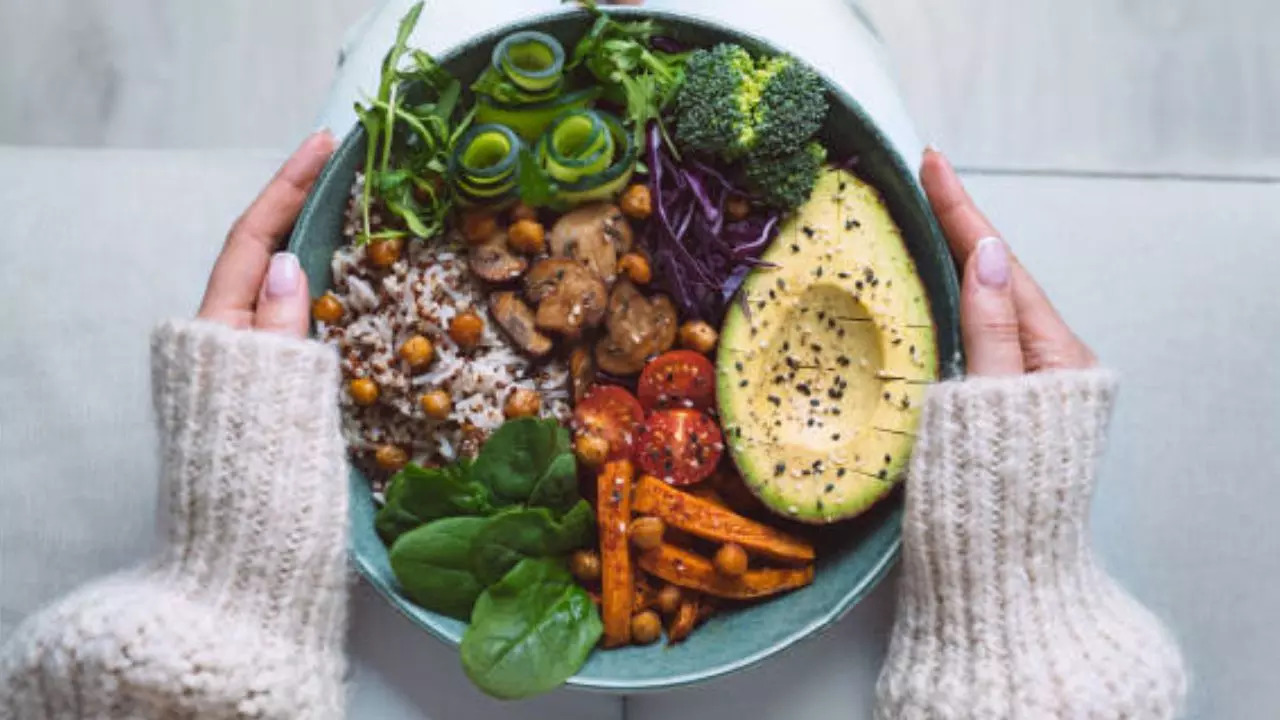Include these foods in your diet to reduce the risk of appendix cancer
Although appendix cancer cannot be completely prevented, adopting a healthy lifestyle can reduce your risk to a great extent. Certain diet and lifestyle tips should be followed, including a plant-based diet, staying active, limiting red and processed meat, etc. Read on to know more.

Include these foods in your diet to reduce the risk of appendix cancer (Image courtesy: iStock)
Although Appendix Cancer A rare form of the disease, it is a serious condition that can significantly impact a person’s quality of life. While no specific diet or lifestyle can guarantee prevention, certain habits and choices may help reduce the risk. Appendix cancer It begins in the cells inside the appendix, a small, tube-shaped organ that is attached to the large intestine. This type of cancer is often discovered accidentally during surgery for other conditions or through imaging tests. The symptoms of appendix cancer, such as abdominal pain, bloating, or a change in bowel habits, are often vague and may be associated with many other conditions.
Some lifestyle and dietary changes can reduce the risk of appendix cancer. So what do these changes include? We spoke to Dr. Vinay Gaikwad, Director- Surgical Oncology, CK Birla Hospital Gurugram, who has given some tips to reduce the risk of appendix cancer.
try to maintain a healthy weight
Maintaining a healthy weight is important to reduce the risk of many cancers, including appendix cancer. Excess fat in the body can cause a chronic inflammatory state, which can increase the chances of developing cancer. Therefore, eating a balanced diet and exercising regularly is essential to maintain a healthy weight.
Tips for maintaining a healthy weight:
– Eat a balanced diet: Focus on a diet rich in whole grains, fruits, vegetables, and lean proteins. These foods are rich in nutrients and low in calories, making them ideal for weight management.
– Practice portion control: Be mindful of portion sizes to avoid overeating. Eating smaller, more frequent meals can help control hunger and prevent excessive calorie intake.
– Limit sweetened beverages: High-calorie beverages such as soda and sweetened coffee can contribute to weight gain. Choose low-calorie options such as water or herbal teas.
2) Start eating Plant-Based Diet
Plant-based diets have been linked to a lower risk of several types of cancer. Fruits, vegetables, legumes and whole grains are rich in vitamins, minerals, antioxidants and fiber, all of which are essential for supporting the immune system and maintaining overall health.
Tips for incorporating a plant-based diet:
1. Fruits and vegetables: Try to eat five servings or more of fruits and vegetables per day. Cruciferous vegetables like broccoli, cauliflower and Brussels sprouts are especially healthy because they fight cancer.
2. Whole grains: Include whole grains in your diet, such as quinoa, brown rice and oats. Apart from providing important nutrients, these foods aid in digestive regulation, which is important for maintaining gut health.
3. Beans: A great alternative to meat, beans, lentils and peas are a great source of protein and fibre. They also improve general health by contributing to a balanced diet.
3. Reduce your intake of processed and red meat
High intake of red and processed meat increases the risk of gastrointestinal cancer. Processed meat, in particular, contains preservatives and chemicals that have been linked to cancer development.
Healthy alternatives to processed and red meat:
– Lean proteins: Choose lean protein sources like chicken, fish, and plant-based proteins like tofu and tempeh.
– Fish: Fatty fish such as salmon, mackerel and sardines are rich in omega-3 fatty acids, which have anti-inflammatory properties and may reduce the risk of cancer.
– Plant-based proteins: Increase your intake of beans, lentils, nuts and seeds to reduce your reliance on red and processed meat.
The World Health Organisation (WHO) has classified processed meats as Group 1 carcinogens, meaning there is sufficient evidence to link them to cancer, particularly colorectal cancer.
4. Be active
Regular physical activity is an important component of cancer prevention. Exercise helps reduce inflammation, boost the immune system, and balance hormones, which contribute to a reduced risk of cancer.
Tips for staying active:
– Add exercise to your routine: aim for at least 150 minutes per week of moderate-intensity activity, such as brisk walking or cycling. Small changes, such as taking the stairs instead of the elevator, can make a big difference.
– Strength training: Incorporate strength training exercises at least twice a week to build muscle and maintain a healthy metabolism. Choose activities that you enjoy to ensure long-term sustainability.
5) Avoid smoking and alcohol consumption
Smoking is a major risk factor for many cancers, including cancers of the gastrointestinal tract. Quitting smoking can greatly reduce your cancer risk. Similarly, excessive alcohol consumption is associated with a higher risk of cancer, so it’s important to control your intake.
Strategies to reduce smoking and alcohol consumption:
– Get help to quit smoking: If you’re struggling to quit smoking, consider seeking help from a counselor, support group, or nicotine replacement therapy.
– Moderate alcohol consumption: If you want to drink alcohol, do so in moderation. The American Cancer Society recommends limiting alcohol consumption to one drink per day for women and two drinks per day for men.
6. Regular check-ups with a doctor
Regular checkups and screening can help detect cancer early, including appendix cancer. Early detection is crucial for successful treatment.
What to expect during the check-up:
– Discuss symptoms: Tell your doctor about any unusual symptoms, even if they seem minor.
– Follow screening recommendations: Your doctor may recommend screening based on your age, family history, and risk factors.
Get the latest news live on Times Now, along with breaking news and top headlines on diet, health and more from around the world.
cancer


